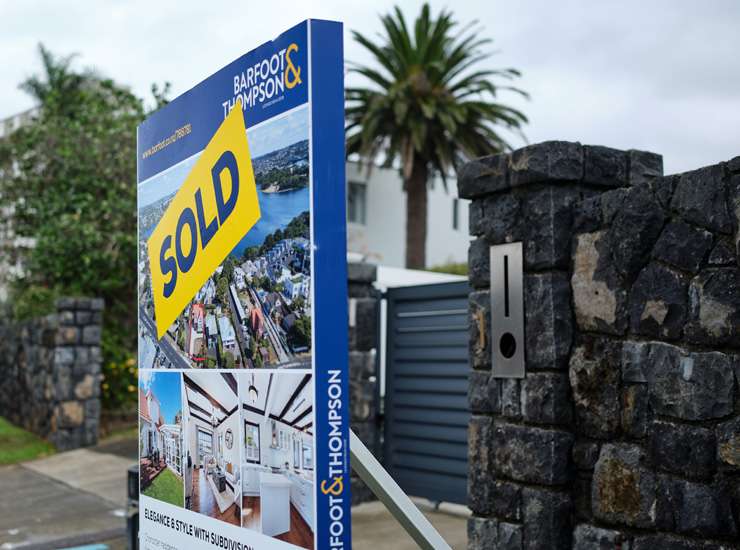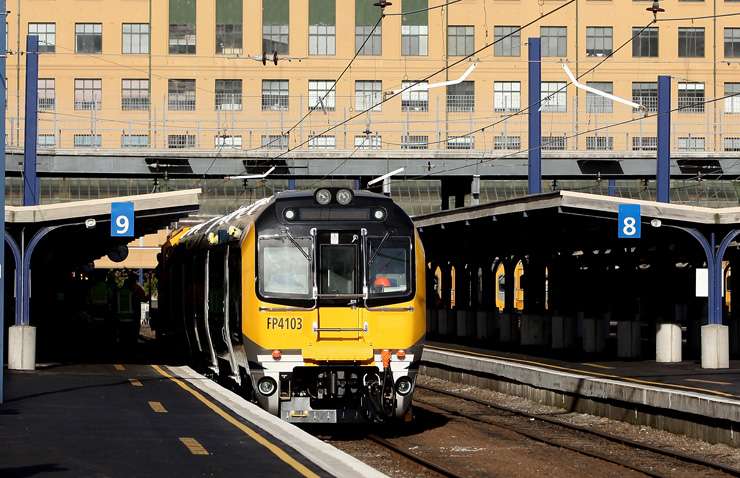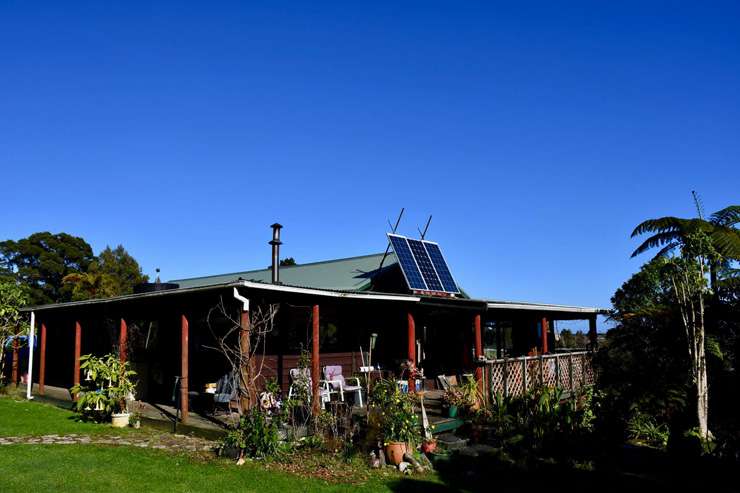Regional homeowners and real estate agents who think Aucklanders are boosting local markets and driving house prices up could be falling for an urban myth.
New data indicates that Aucklanders aren’t heading to the provinces in droves, in search of for cheaper housing. In fact the reality is that the number of Auckland buyers in the regions has fallen.
Data produced by CoreLogic for OneRoof shows the trend of Aucklanders moving to the provinces peaked in 2015/16 and has fallen since then, although there were limited bounces during the pandemic.
To crunch the data, CoreLogic tracked sales in Auckland and purchases in the regions by “movers”, which it classifies as a group. The group excludes first-home buyers and multiple property owners.
Start your property search
CoreLogic’s head of research Nick Goodall says first-home buyers who rent in Auckland or other big cities, but then buy in smaller cities, or other regional areas can’t be tracked as a group, so aren’t included in the statistics. What’s more, unlike movers, they may not be entering the market with larger chunks of capital than local buyers. “That’s one thing missing from this data,” says Goodall.
He says the data focused on Tauranga, which has always been an indicator of trends happening more widely. Tauranga was, and is, the number one destination for Aucklanders leaving the big smoke.
Whenever CoreLogic analysed the data it found that although people were moving to many other destinations, Tauranga was the litmus test. “We looked at [various regional locations] and nowhere ever had the same scale as those moving to Tauranga,” says Goodall.

A sold sticker on an Auckland sale sign. Properties in the city tend to fetch higher prices than houses in the regions. Photo / Fiona Goodall
The Tauranga figures are stark. In Q4 2016 (October to December) 31% of movers buying in Tauranga came from Auckland. From there the percentages fell away before a rally during the pandemic. The 2022 peak for Aucklanders moving to Tauranga and buying property there was 22% in Q2 (April, May, June) but this dropped to 17% in Q3 (July, August, September), considerably down on the 2016 peak.
The data matches what Tremains Tauranga managing director Anton Jones is seeing on the ground. “At the moment [Aucklanders] are definitely not paying more. Aucklanders are still moving to Tauranga, but not in as large numbers as during the boom,” he says.
“There was a significant number [at the height of the trend] and we were getting amazing house prices. That would have pushed prices up.
“To say that it’s happening now would be wrong because Aucklanders are getting less for their properties. So inevitably, they'll pay less for their next property.”
CoreLogic drilled down into the Waikato region excluding Hamilton and found similar trends.
The peak of Auckland movers came a bit earlier in the Waikato region with 33% of mover purchases coming from Auckland in Q1 (January, February, March) 2015. “This trended down over the next few years before hitting a trough of 15% in Q1 2020, before gradually lifting through the pandemic to a recent peak of 28% of mover purchases in Q2 2022, before once again dropping last quarter to 22%.”
CoreLogic drilled down into the Matamata-Piako District in particular to see what was happening there. Auckland movers’ presence peaked in 2015 at 25% of mover purchases, dropped to 11% in 2020, then increased to 16% year-to-date, Goodall says.
“So far this year 38% of mover purchasers in Matamata-Piako came from within Matamata and Piako, a further 15% from somewhere else in the Waikato District, 13% from the Bay of Plenty region, 6% from Hamilton, 11% elsewhere in the North Island, and 2% from the South Island.”

CoreLogic head of research Nick Goodall: “Everywhere else in the country seems to blame Aucklanders for their high prices.” Photo / Supplied
Goodall says the data is interesting because of the anecdotal belief that Aucklanders are driving prices in the regions. “I find it interesting because this is often the case where anecdotally we’ll hear that Aucklanders are driving up prices, yet the evidence suggests otherwise.
“It probably stands to reason that Aucklanders have greater equity behind them due to higher property prices. They can afford to pay more when they move to the regions. But whether it has a big enough impact on the rest of the market is a whole other question.”
Even though the data doesn’t align, individual real estate agents in the regions may have connections to Auckland, which see them selling to a higher proportion than the average, says Goodall. That drives the myth. Or the agent may be selling the type of properties that appeal to movers who are often downsizing from the family home, and bank increased profits by buying in a cheaper region.
Aucklanders and other city dwellers still buy in the regions and agents say that sometimes they’re not as price conscious as locals because they’ve banked money from sales of their city properties.
The trend of moving to the provinces isn’t just the preserve of Aucklanders. Big city dwellers from Wellington, Christchurch and Dunedin move to smaller areas for much the same reasons as Aucklanders in their regional areas.
Wellingtonians who can’t afford city prices, buy as far afield as the commuter train line reaches into the Wairarapa. And South Island buyers traverse the Southern Alps to buy on the West Coast.

A train pulls into Wellington station where buyers who are priced out of the capital city commute from as far as the Wairarapa. Photo / Getty Images
What Jones calls the halo effect, pushes out from those smaller centres as well. Tauranga buyers who can’t afford to buy in the Bay of Plenty city have been heading over the Kaimai Ranges to Matamata, Morrinsville, Putaruru, Tokoroa, Tirau and so on.
Although falling numbers of movers to the regions means prices will not be driven up in the way popular culture expects, some buyers are willing to pay more than a local might.
“They will have a slightly better buying power because they have come from a place that's more expensive,” says Goodall. “If they are selling down, they'll have greater liquidity and so be able to pay slightly over the odds compared to local buyers. They probably have a little bit more equity behind them. So that enabled them to pay a slightly higher price.
“But there are not floods of them doing that,” says Goodall. “There’s a marginal buyer for some houses, but not others.”
West Coast Property Brokers agent Paul Murray sees that on the ground. His patch in Karamea has good fibre internet and has drawn buyers from right across the country.
Australian-born former journalist turned real estate agent Murray was one of those buyers who did not feel the need to bargain hard when he moved to Karamea in 2002 after working for a decade in Japan.

This house on Karamea Highway, in Karamea, West Coast, sold last year for $600,000 - almost double its RV. Photo / Supplied
“I am a buyer who will pay [the] asking price if I consider it reasonable. I bought my house here in 2002 for $53,000. It's likely worth $450,000 now.
Murray says prices have definitely increased as buyers like him from more affluent urban areas have entered the market. “This is a natural flow-on from buyers selling high and buying low.
“I sold a property to a buyer from Dunedin for $50,000 over the asking price sight unseen. The vendor was well pleased. The buyers, when I asked, merely said, they liked the look of the property and didn't want to miss out. “
The home on Karamea Highway sold for $600,000 in September 2021. The 100sqm home was built in 1995 on a land area of 5.94 hectares.
While individual examples exist, the belief by many that the Auckland factor is widespread is more urban legend than reality. “It makes sense to people as a story,” says Goodall. “And we do find individual situations where this happens and that backs up [their] thinking.” Local agents and homeowners extrapolate from there.
Goodall says it’s the same sort of thinking that goes on with Aucklanders believing that foreign buyers push up prices. “I do draw the parallel for Aucklanders who seem to blame foreign buyers for the property market. And then everywhere else in the country seems to blame Aucklanders for their high prices.”



































































